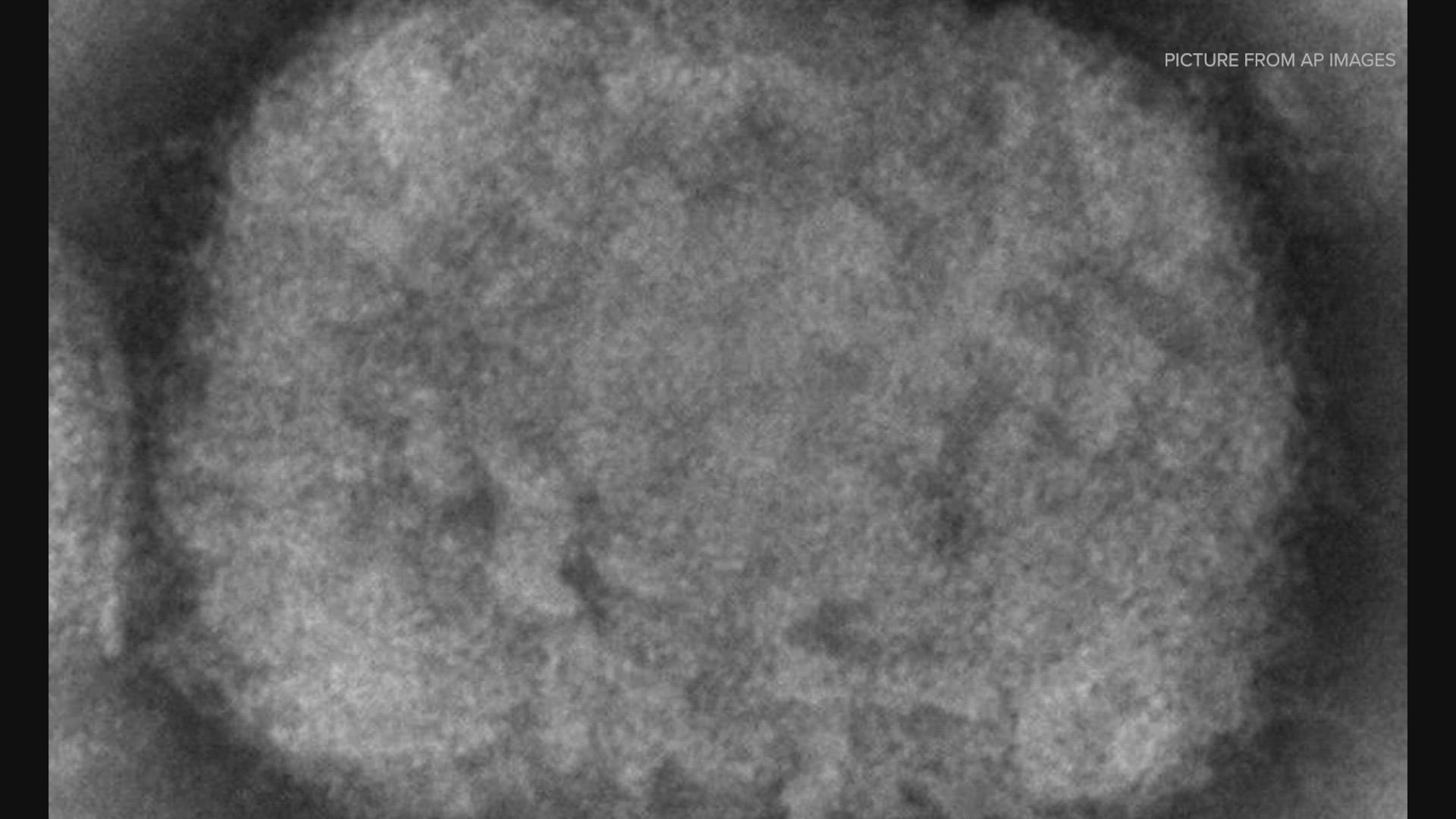KING COUNTY, Wash. — Editor's note: The above video originally aired May 23, 2022.
King County health officials warned Wednesday that local transmission of the monkeypox virus, first confirmed in the county in May, is "likely."
Public Health – Seattle & King County said in a release that recent cases of monkeypox were identified in residents who did not travel during the time they would have been exposed to the virus, suggesting the virus was transmitted locally.
Health officials have identified nine monkeypox cases in King County as of July 6. King County's first monkeypox case was confirmed on May 23 after a man who recently traveled internationally to a country with virus cases reported feeling ill.
As of July 6, there are almost 7,000 cases globally and 560 cases in the United States, according to the Centers for Disease Control and Prevention (CDC).
“Finding monkeypox in residents who were likely exposed locally highlights the importance for people who are at higher risk for monkeypox and for healthcare providers to be able to recognize the symptoms promptly and to take steps to limit the risk for infection and the spread to others," said Jeff Duchin, health officer for Public Health – Seattle & King County.
"We expect to see additional cases locally as the outbreak grows in the US and globally. We are working to limit the impact on our community, collaborating with a strong network of community-based organizations to share information so that people can quickly recognize if they develop a rash or other flu-like symptoms, limit close contact if symptoms develop, and get checked out right away.”
What is monkeypox? And how does it spread?
Monkeypox is a virus that originates in wild animals like rodents and primates, and occasionally jumps to people. Most human cases have been in central and west Africa, where the disease is endemic.
The illness was first identified by scientists in 1958 when there were two outbreaks of a “pox-like” disease in research monkeys — thus the name monkeypox. The first known human infection was in 1970, in a 9-year-old boy in a remote part of Congo.
Monkeypox belongs to the same virus family as smallpox but causes milder symptoms.
Most patients experience fever, body aches, chills and fatigue. People with more serious illness may develop a rash and lesions on the face and hands that can spread to other parts of the body.
The incubation period is from about five days to three weeks. Most people recover within about two to four weeks without needing to be hospitalized.
Monkeypox can be fatal for up to one in 10 people and is thought to be more severe in children.
People exposed to the virus are often given one of several smallpox vaccines, which have been shown to be effective against monkeypox. Anti-viral drugs are also being developed.
Battling monkeypox
As the World Health Organization (WHO) mulls declaring monkeypox a global health emergency, the U.S. announced "aggressive" steps on June 29 to attack the latest monkeypox outbreak.
U.S. health officials expanded the group of people recommended to get vaccinated against the monkeypox virus.
The administration said it was expanding the pool of people who are advised to get vaccinated to include those who may realize on their own that they could have been infected. That includes men who have recently had sex with men at parties or in other gatherings in cities where monkeypox cases have been identified.
There have been no U.S. deaths and officials say the risk to the American public is low. But they are taking steps to assure people that medical measures are in place to deal with the growing problem.
“We will continue to take aggressive action against this virus,” said Dr. Ashish Jha, White House COVID-19 response coordinator, who has also been playing a role in how the government deals with monkeypox.
A two-dose vaccine, Jynneos, is approved for monkeypox in the U.S. The government has many more doses of an older smallpox vaccine — ACAM2000 — that they say could also be used, but that vaccine is considered to have a greater risk of side effects and is not recommended for people who have HIV. So it's the Jynneos vaccine that officials have been trying to use as a primary weapon against the monkeypox outbreak.
The government has deployed over 9,000 doses of vaccine as of late June. U.S. officials said they are increasing the amount of Jynneos vaccine they are making available, allocating 56,000 doses immediately and about 240,000 more over the coming weeks. They promised more than 1 million more over the coming months.

